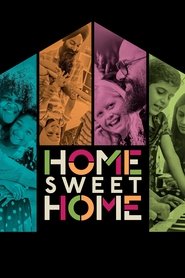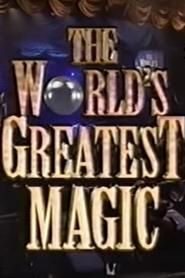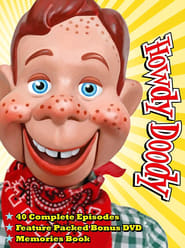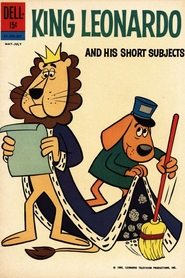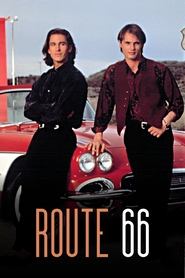Nbc TV Series - Page 71
-
The Swift Show
1948
The Swift Show
1948
The Swift Show is an American variety/game show that aired on Thursdays at 8:30pm EST on NBC premiering April 1, 1948 and running to 1949. -
Home Sweet Home
2021
Home Sweet Home
2021
A social experiment focusing on real families of different backgrounds who experience a new way of life when they trade homes. The participants boldly step out of their comfort zones, taking part in each other's daily routines. Afterward, the families come together to share stories as well as their new perspectives and learnings. -
The World's Greatest Magic
1994
The World's Greatest Magic was a series of American television specials showcasing magic acts. The first of five shows was broadcast by NBC in 1994, and continued with annual editions through 1998. These shows were most often first telecast during the Thanksgiving holidays when special programming would occur. These specials reran occasionally on ABC Family from October 1996 to early 2002. The first episode was hosted by Robert Urich, the second by Alan Thicke, and the final three episodes by John Ritter. Before each commercial break of every episode, in a segment known as the Mac King School of Magic, Mac King showed viewers a simple magic trick, and would break its steps down after the commercial break so that the audience could perform the same trick for family and friends. Here's a list of the closing illusions for each of the five shows, and the magicians that performed them: ⁕World's Greatest Magic I: Franz Harary - Space Shuttle vanish ⁕World's Greatest Magic II: Penn and Teller - Magic bulle -
Reach for the Stars
1967
Reach for the Stars
1967
Reach for the Stars was an American game show which briefly aired on NBC weekday mornings at 10:00 beginning January 2, 1967 for a total of 65 episodes. The show was produced by Merv Griffin Productions at NBC's New York studios and was hosted by longtime broadcaster Bill Mazer. -
Jacobo Timerman: Prisoner Without a Name, Cell Without a Number
1983
Jacobo Timerman: Prisoner Without a Name, Cell Without a Number is a TV movie centering on the story of Argentine newspaper publisher Jacobo Timerman's experiences and torture in a secret prison. -
Howdy Doody
1947
star 8Howdy Doody is an American children's television program that was created and produced by E. Roger Muir and telecast on the NBC network in the United States from December 27, 1947 until September 24, 1960. It was a pioneer in children's television programming and set the pattern for many similar shows. One of the first television series produced at NBC in Rockefeller Center, in Studio 3A, it was also a pioneer in early color production as NBC used the show in part to sell color television sets in the 1950s. -
The Paul Williams Comedy Show
1979
The Paul Williams Comedy Show is an American television pilot, starring Paul Williams, that aired on NBC on June 27, 1979. -
Kid 'n Play
1990
star 6Kid 'n Play is an animated cartoon series based on the real-life hip-hop duo, Kid 'n Play. It ran for one season on NBC from 1990 to 1991. On the show, Kid 'n Play were portrayed as teenagers, but their recording careers remained the same as in real life, as did their character traits. The real Kid 'n Play appeared in live-action wraparounds of the cartoons, but voice actors took over for the animated versions of the duo. The show stressed positive role models, teaching children how to get along with each other and stay out of trouble. In 1992, Marvel Comics published a comic book based on the cartoon. The comic book ran for nine issues. -
Camel News Caravan
1948
star 6The Camel News Caravan was a 15-minute American television news program aired by NBC News from February 14, 1949, to October 26, 1956. Sponsored by the Camel cigarette brand and anchored by John Cameron Swayze, it was the first NBC news program to use NBC filmed news stories rather than movie newsreels. On February 16, 1954, the Camel News Caravan became the first news program broadcast in color, making use of 16mm color film. In early 1955, the R.J. Reynolds Tobacco Company, maker of Camel cigarettes, cut back its sponsorship to three days a week. Chrysler's Plymouth division sponsored the other days, and on those days, the program was labelled the Plymouth News Caravan. The program featured a young Washington correspondent named David Brinkley, and competed against Douglas Edwards with the News on rival CBS. With greater resources, the News Caravan attracted a larger audience than its CBS competition until 1955. Launched on February 16, 1948, by NBC as NBC Television Newsreel, and later Camel Newsreel Theatre it -
King Leonardo and His Short Subjects
1960
star 6King Leonardo and his Short Subjects is an animated cartoon series released in 1960 by Total Television, sponsored by General Mills. -
$25 Million Dollar Hoax
2004
$25 Million Dollar Hoax is an unscripted television series that was originally shown on American network NBC in November 2004. It is based on a United Kingdom show titled The Million Pound Hoax, broadcast on Sky One earlier that year. $25 Million Dollar Hoax consists of three unscripted hour-long episodes in which small-town girl Chrissy Sanford plays a hoax on her family by convincing them she had won a US$25,000,000 lottery prize through the internet, and that it had changed her from a sweet girl into a spend-a-holic. This program is an example of reality television. $25 Million Dollar Hoax contained guest appearances by Ed McMahon, George Gray, and N*SYNC's Lance Bass. Chrissy successfully pulled off the hoax, which won her and her family over $400,000 in cash and prizes. -
The Paul Winchell Show
1950
star 7The Paul Winchell Show, or The Paul Winchell and Jerry Mahoney Show, was a variety program which aired on NBC prime time from 1950 to 1954, starring ventriloquist Paul Winchell and his dummy, Jerry Mahoney. -
The Dean Martin Comedy World
1974
The Dean Martin Comedy World is an American variety comedy television series, seen on NBC during the summer of 1974, as a summer replacement for The Dean Martin Show. It was also that program's last summer replacement series. The show was hosted by Jackie Cooper, Nipsey Russell and Barbara Feldon. -
Miss Susan
1951
star 5Miss Susan is a daytime drama which aired on NBC from March 12 to December 28, 1951. The show, originating from Philadelphia and later retitled Martinsville, U.S.A., aired for fifteen minutes at 3:00 p.m. ET on weekdays. The main writer was William Kendall Clarke. -
NBC News at Sunrise
1983
NBC News at Sunrise
1983
NBC News at Sunrise is an American early morning television news program that aired on NBC from 1983 to 1999. The program featured the top news headlines of the morning, sports and weather reports, and business segments. Many of the program's anchors also appeared on NBC's morning news program Today. -
Ding Dong School
1952
star 7Ding Dong School, billed as "the nursery school of the air", was a half-hour children's TV show which began on WNBQ-TV in Chicago, Illinois a few months before its four-year run on NBC. A precursor to both Sesame Street and Mister Rogers' Neighborhood, the show was hosted live by Frances Horwich, and at one point was the most popular TV series aimed at preschoolers. The show and its host, Miss Frances, were mentioned in the comic strip Peanuts in 1955 and 1956. The show was revived in 1959 as a syndicated program, now videotaped and distributed by National Telefilm Associates. This iteration ran until 1965. Five NBC kinescoped episodes from 1954-1955 are housed at the Library of Congress, in the J. Fred and Leslie W. MacDonald Collection. -
Club Oasis
1957
Club Oasis
1957
Club Oasis is a 24-episode half-hour comedy-variety show, set in a chic simulated nightclub, which appeared on NBC in the 1957–1958 television season. The series alternated with The Polly Bergen Show in the 9 p.m. EST time slot on Saturday evenings. Though several entertainers appeared as hosts on Club Oasis, the program became most closely associated toward the end of its short run with the bandleader Spike Jones, who became its permanent host, and his City Slickers. After their performances, the Club Oasis guests were interviewed by Hy Gardner. In the series premiere, Van Johnson acted as host, and the singers included Jo Stafford and the four Ames Brothers. In the second episode, Kay Starr sang "Wheel of Fortune", "When You're Smiling", "That's What the Good Book Says", and "Three Letters". On December 21, 1957, the program featured Fred Waring and the Pennsylvanians performing "Holiday", "Auld Lang Syne", "When Irish Eyes Are Smiling", and "Easter Parade", as well as some traditional carols. Other Club -
Brains & Brawn
1958
Brains & Brawn
1958
Brains & Brawn is the name of two similar NBC game shows aired on Saturdays in 1958 and 1993 respectively. -
Route 66
1993
star 6Route 66 is a short-lived sequel to the 1960 television series of the same name. It aired on NBC in 1993 and was cancelled after only four episodes. -
It Could Be You
1956
It Could Be You
1956
It Could Be You was a television game show produced by Ralph Edwards Productions in the late 1950s in the United States, broadcast daily in the weekday daytime schedule for five years 1956-61, and weekly in the evening on-and-off over three years 1958-61. Bill Leyden was the host, and Wendell Niles was the announcer.

